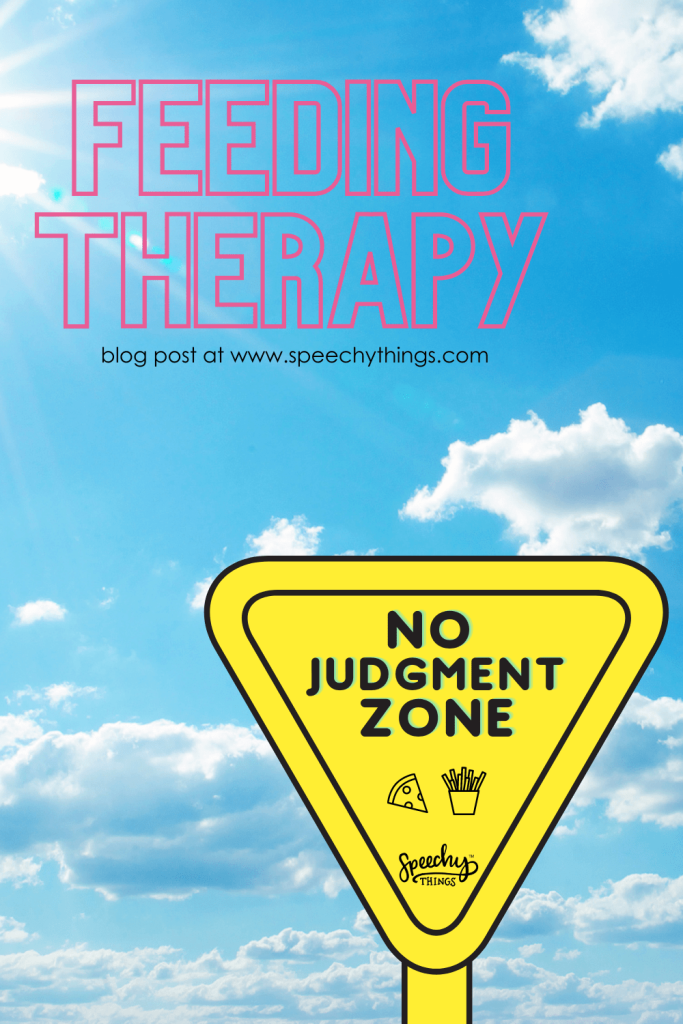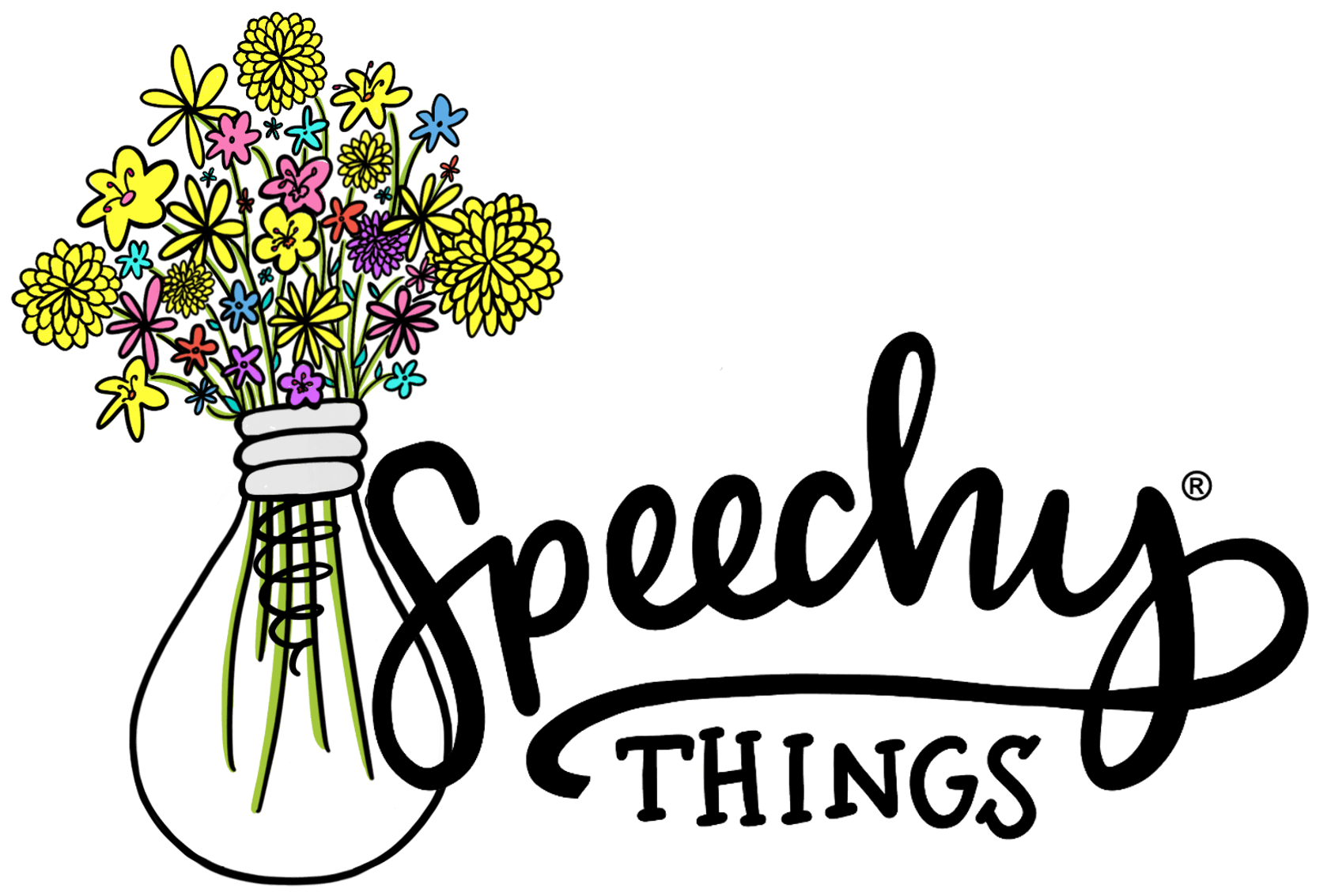We all have an idea about what is “healthiest” when it comes to food, right? Words like “organic” or “whole” may come to mind. There are all sorts of philosophies, diets, and trends that tell us what is best for our bodies. The question is, should we cling to our beliefs about “health” when it comes to feeding therapy? I’m making an argument for…
Nope.
Or, at the very least, do so with caution. Here’s why:
.
1. Scope
We are SLPs, not registered dieticians. It is simply outside our scope of practice to give advice on nutrition and it’s best we co-treat with someone whose expertise and training lies in that area. We can absolutely provide guidance on food qualities such as textures because we have an understanding of what oral motor skills are required to safely consume those textures. We can also comment if we notice a child’s diet excludes an entire category of food (Let’s face it… it’s vegetables. Their diet probably excludes vegetables.). But can we ethically dictate to a patient what is or is not “healthy” or “good” for them to eat? Ehhhhh… let’s leave that to the dietician.
.
2. Culture
Food is deeply cultural. Ideas about healthy eating vary greatly across the globe. Heck, they probably vary across our neighborhood! Who are we to judge? Everyone has different ideas about what is acceptable to feed their children. It’s always best to do some research (or just ask!) to gain a better understanding of a particular family’s culture. If we see a concern with a child’s safety, absolutely speak up and intervene. If we just think to ourselves, “hmm I wouldn’t feed that to my child,” that’s probably best kept to ourselves.
.
3. Access
Not every family is going to have access to healthy foods. Maybe the family simply doesn’t have the budget to purchase fresh fruits and vegetables. Maybe the parent works 3 jobs and doesn’t have time to make meals from scratch. Maybe this family lives in a food desert where produce is simply not available to them. Maybe the parent struggles to have enough food to give their children at all. Maybe the family doesn’t have reliable transportation. The list goes on. We should always be mindful that there could be struggles we are not aware of.
.
4. Rapport
This may be the most important reason of all- parents are doing the best they can. We should NEVER make a family member or caregiver feel judged. Bare in mind, this caregiver is probably already acutely aware that their child’s diet is not packed with nutrition… that’s why they’re in feeding therapy. I can’t tell you how many times I’ve had a parent apologize or appear to feel extremely embarrassed as I’m taking their child’s food inventory. “I know, I know. Chicken nuggets aren’t the healthiest food.” That’s where I step in to remind them, “Hey- that’s a protein and therefore a win!” These “unhealthy” foods are often the only food that child will eat. Imagine the stress of a parent who is simply worried about their child getting enough calories during the day. Our priority is to expand their food repertoire however we can.
.
I hope this gives you some food for thought…
I’m sorry. I couldn’t resist.
.
I believe so strongly in removing the judgment from feeding therapy that I am even intentional about teaching my kids the importance of using neutral or positive language about food. We focus on stress-free, fun activities like those included in Food Science. (These are great for home programs, by the way).
.
.

.
.
Remember, it is an emotional process to help a child become the little eater their parent always dreamed they would be, and there is almost always some counseling needed due to the stress involved. (Which actually is a great reason to have a referral list of counselors and/or psychologists in your area in addition to dieticians). Ultimately, keeping judgment out of feeding therapy will go a long way in aiding progress.
Thanks so much for reading! Don’t forget to become a VIP if you’re looking for some freebies and therapy tips!
Happy Eating,















